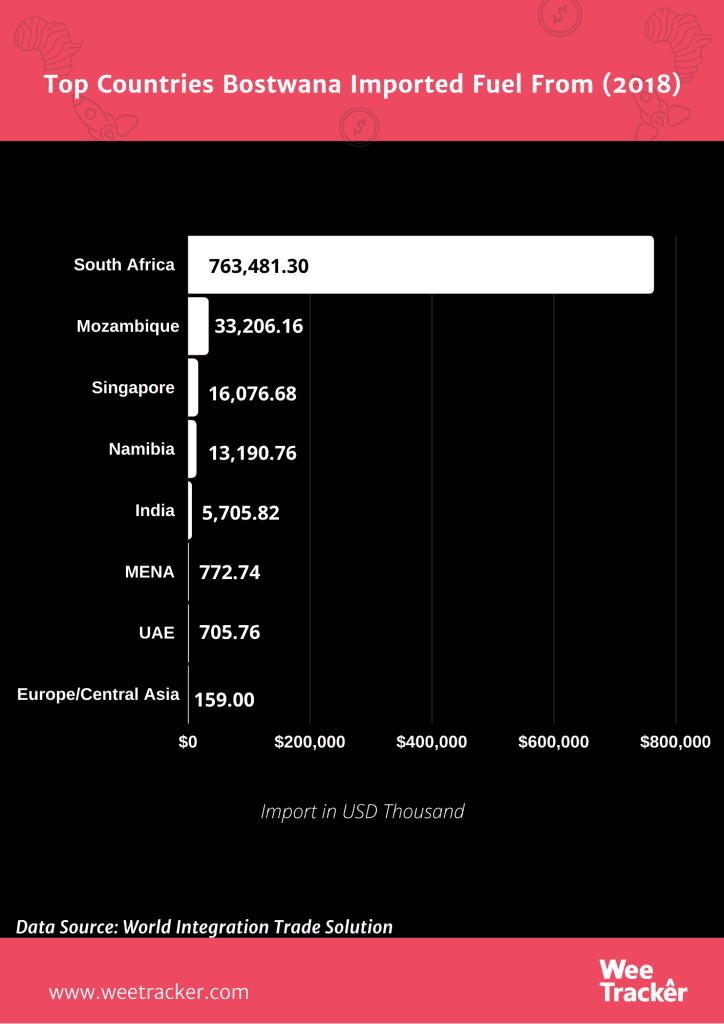Elephants Aren’t The Only Things Dying Off In Botswana

Botswana, the world capital of African elephants, is currently trying to discover what’s behind the dwindling its precious population of the large mammalian species. With Covid-19’s havoc on the wildlife industry, the Southern African country needs to find a solution if the sector is to survive post-pandemic.
Nevertheless, elephants—more than 350 of them and counting—are not the only worry in Botswana. The pandemic has also created a blockage in the nation’s fuel importation and supply, culminating in severe shortage and inevitable rationing of the commodity.
Not As Mysterious
The cause of the elephant deaths in Africa’s best Safari country remains undiscovered, but scientists and conservations are doing their best to find out. But the cause of the country’s seemingly abrupt and exacerbated fuel shortage is well known. Border clearance delays occasioned by regulations stemming from updated coronavirus containment/control measures have brought on the plunging crisis.
A good number of fuel stations in Botswana are running out of stocks, resultingly extending the shortages beyond the 2 to 3 days initially projected by the government when the scarcity was first felt early in July. Truck drivers operating in the system report that waiting for virus tests at the borders is the main trigger for the shortages experienced.
Coronavirus-pertained delays at African borders is no new subject matter. In East Africa, truckers decried a longer-than-usual extension of border stay because of Covid-19 tests and containment directives. As a result, East Africa’s trucking and logistics industries were presented with more pronounced delay challenges that greatly affected business in different sectors.
Botswana’s fuel shortage has now left the government no option than to ration the commodity officially. President Mokgweetsi Masisi said the move would ease the crippling shortages, which has formed long queues at fuel stations and cajoled consumers into stocking up hastily. The shortages have disrupted businesses and threaten to exacerbate the woes of an economy already expected to shrink by 13 percent this year.
SA’s Lockdown, Again
South Africa’s lockdown is, yet again, to blame for a shortfall. Its severe coronavirus lockdown has something to do with Botswana’s current pickle with petrol. When the nation went into the movement restriction procedure, fuel stations in Botswana started rationing fuel supplies because they knew it is only a matter of time before the closure of borders becomes a pressing problem for the business. Even refineries in South Africa also started reducing fuel supplies to Botswana.

In 2018, the top partner countries from which Botswana imports fuel were South Africa, Mozambique, Singapore, India, and Namibia. At the beginning of June, South Africa reportedly had an inadequate stock of diesel. The lockdown easing, however, triggered a more rapid recovery as demand drastically increased. Still, rationing was implemented in order to manage demand and preserve stock.
Botswana Oil (BOL), which is a major importer of fuel into the country, was given the go-ahead to look away from South Africa, and towards Namibia and Mozambique among other markets to augment the supplies from its primary source. Botswana has, according to BOL, already started getting fuel imports from Mozambique. The government also authorized access to 8 million liters from national strategic reserves to boost local supply.
Botswana uses up about 3.3 million liters of fuel in a day, which is why it often keeps reserves at 12 days’ supply. The country’s lockdown has since been lifted, but its borders are yet to open. Only essential imports and virus-free truckers are allowed to enter the country.
Featured Image: Chuttersnap Via Unsplash